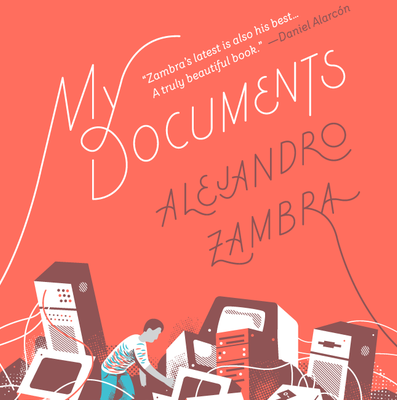Alejandro Zambra deserves his very own sentence (so here it is).
I’ve come across far too many breathy, overeager reviews that are downright giddy to liken Zambra—Chilean writer, very of-the-moment—with someone entirely different. Predictably, Zambra’s equally hip literary/national compatriot Roberto Bolaño is at the tip of everyone’s tongue. And then there are other authors, nearly all of them translated—Karl Ove Knausgaard, Daniel Kehlmann, Elena Ferrante, Ben Lerner—who are inevitably mentioned in the same breathless swoop. It’s true that these writers are at-least-obliquely occupied with Zambra’s brand of hyper-real, genre-eliding, syntactically all-too-acute, auto-fictive and/or meta-fictive literary fiction, but there’s something decidedly pungent—and utterly unique—about Alejandro Zambra’s particular kind of fiction.
Did you count the hyphenations I needed to describe Zambra’s writing? There were eight of them. They’re intentional—as Zambra’s work, too, doubles, triples, even quadruples multiple intensities at once, though without the agglutinative slog that sentence carried (I am so sorry, dear reader). Zambra’s fiction occasions a rather hefty sleight of hand.
This is true, even with his latest publication—My Documents, translated by (Asymptote’s own former team member!) Megan McDowell and published by McSweeney’s this month. It’s his longest in English to date, and still a mere 240 pages long. I read it in a single sitting, but like I mentioned in this month’s What We’re Reading, I’ve kept chewing for weeks to follow.
First, the details. My Documents purports to be a short story collection, and its title (and first story) suggest that the collection is composed of documents culled at random from the author’s Documents folder.
The book does not ignore the Internet, but it does not annoyingly fixate on its novelty to the detriment of more fully-fleshed stories, characters, and narratives. The characters in this collection know what computers are, and use them frequently. They get addicted to computers and use them in search of closeness and distance from those who are important to them, and My Documents is acutely aware of the fact. And the Internet is no literary blip.
The phrase “Internet Novel” appears to denote a certain fictive engagement with our collective Internet imaginings (I might be wrong here). It might connote some degree of distraction, disconnect from the palpable material world, and though the characters in these stories all navigate some degree of technological-qua-communicative isolation, they are totally felt in their reiterations as characters, documents, stories. Especially acute in the earliest story—but truly evident throughout the collection—one thought, one impression, leads to the next by tangible necessity.
As humans, the protagonists of My Documents—and even its lesser, slighter characters—are lonely and fearful, but as documents, violently spoiled in their contrivances, their thoughts appear more intimate than my own. I’m tempted to describe—at least summarize—some of them, in the interest of variety. There’s more than one deadbeat and absentee father, there are several violent encounters, there are whole stories—such as the encounters mediated by screens, falsifications, and therefore rendered all the more brutal. There are men and women brutalized only in the double imaginary of a piece that imagines a character who is also imagining. There are several stories explicitly about writing, but I’d argue they are all about literature, to some extent—even for those characters who housesit at a professor’s and do not read at all.
I hesitate to deploy the phrase “character-driven,” though these stories contain silently, hilariously explosive protagonists, and function by virtue of their descriptive strength. It isn’t in exposition, but in syntax where the story assumes its vibrancy, thanks to Megan McDowell’s superb translation. Every sentence is fraught, dripping with an apparent simplicity, but wielding a nigh-brutal force in rendering situations and characters that simply do not let go. As its title suggests, My Documents encompasses all the texts, emails, letters, and words that are revised, copied, agonized over, and, ultimately, unsent. What do we do with the stories we cling to? Who are they for? In 240 pages, My Documents contains the gravity of a novel twice its length.
*****
P.S. Want proof that we’re on-the-pulse here at the blog? Here’s an early translation we actually published right here, from way before Translation Tuesday was a thing, and before I was even a blog editor: an essay called “The Novel I Lost,” about the film adaptation of Zambra’s first novella, Bonsai.

